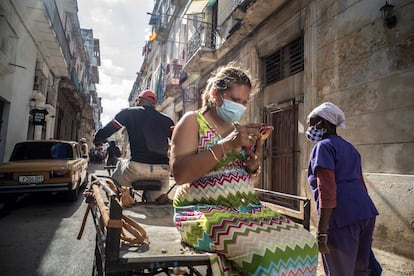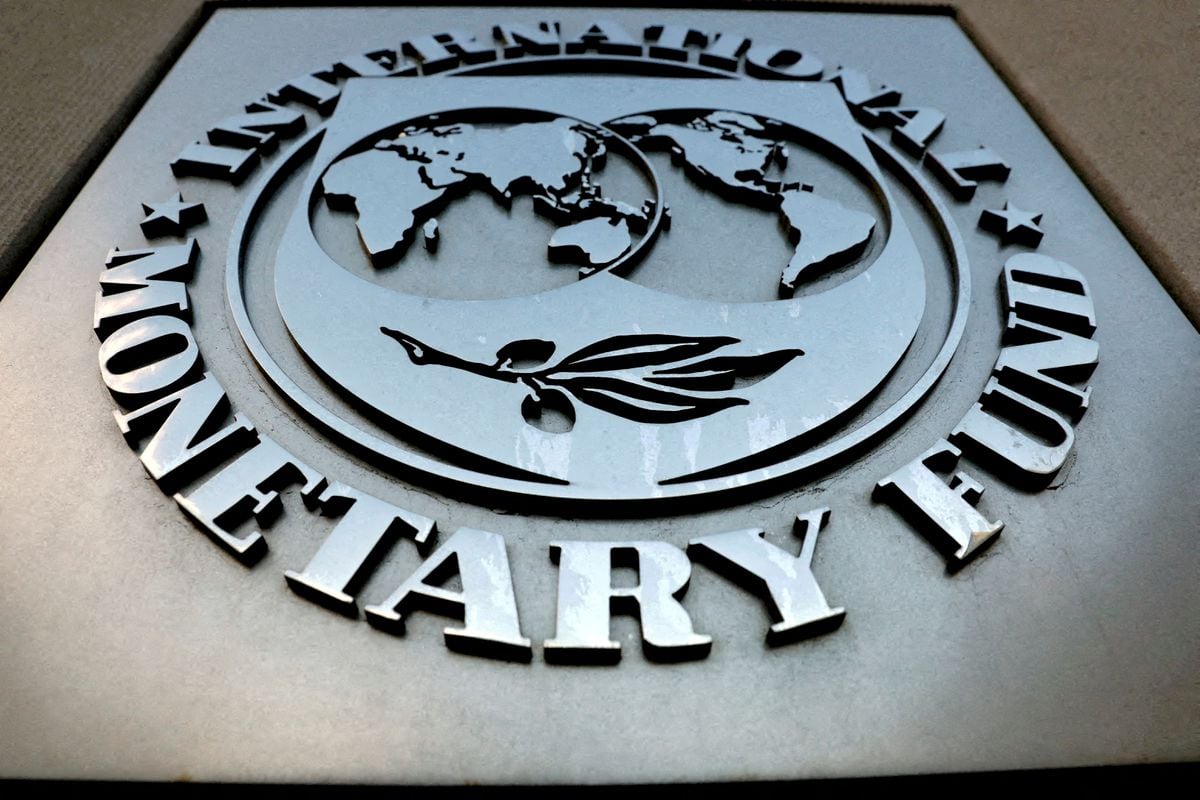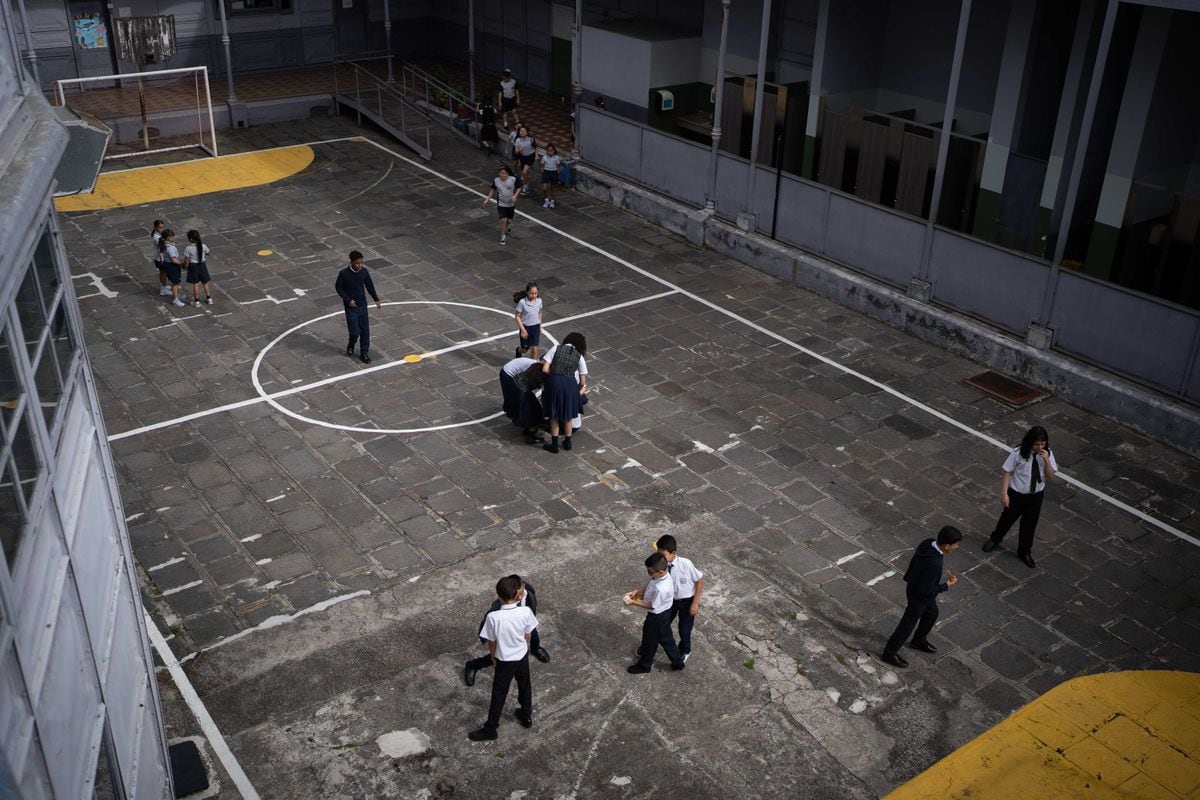A woman looks at her mobile phone while riding a bicycle cart in Havana, Cuba, Ramon Espinosa / AP
Confinement measures by covid-19 pushed the world to migrate online.
From teleworking to shopping, and therefore payments, are increasingly concentrated on the internet.
However, for Latin American countries, citizens with technological skills, a connection to the web and a bank account live in a much more agile and comfortable world than those who are lagging, agreed those who lead the central banks in Mexico and Brazil, in a discussion moderated by the Bank for International Settlements (BIS).
The governor of the Bank of Mexico Alejandro Díaz de León and the president of the Central Bank of Brazil, Roberto Campos Neto, discussed the technological force that is sweeping the region today in terms of payments and financial transfers.
The Mexican highlighted that, while the trend in the world of finance is to offer increasingly user-friendly digital products and services, a significant financial exclusion persists in the country.
"The pandemic has deepened the digital divide," said the economist, "financial inclusion has gone from being an opportunity to an imperative for our countries and central banks have many roles in this, as regulators, operators, developers and catalysts."
During the pandemic, electronic transfers of less than 400 dollars (8,350 pesos at the current exchange rate) increased by 9%, said the governor of the Bank of Mexico, reaching 885 million transactions.
"This shows us that, especially during the pandemic, these types of payments are critical."
Mexico launched in September 2019 a free mobile application to make payments quickly and safely called CoDi.
However, only eight million users have signed up, Díaz de León reported.
"We hope that the tool will be a critical element in financial inclusion, since, in Mexico, there are 40 million people who have a mobile phone, but not a bank account."
Central banks of Uruguay, Bahamas and the Central Bank of the Eastern Caribbean are already testing their own cryptocurrencies in a section of the population, assured the moderator of the event Alexandre Tombini, representative of the office for the Americas of the BIS, and the topic is one that it already occupies most of the central banks in the world.
A cryptocurrency is a digital asset that can be safely exchanged through a secret language or cryptography and in countries such as Argentina and Venezuela it is emerging as an accessible investment and alternative to investments in local currency, since it is not susceptible to the inflation in the country.
"In Brazil we are in a formal process of developing our own cryptocurrency, we are in an advanced stage," announced Campos Neto, who heads the central bank in that country.
Technical questions remain to be resolved, he added, such as how centralized will the issuance and custody of this new currency be?
"It is very important to understand that the use of digital currencies will occur in conjunction with mobiles, with the 5G network and with technological innovations."
Díaz de León assured that for Mexico as well, "it is not a question of whether it will be done or not, but how and when it will be and it is something that we have to address very quickly."
The Mexican digital currency should be an extension of the one already issued by the central bank, he said, and should be done considering consumer protection and the implications for monetary policy.
Subscribe here
to the
EL PAÍS América
newsletter
and receive all the informative keys of the current situation in the region.


/cloudfront-eu-central-1.images.arcpublishing.com/prisa/GSAG3AFDE5GZ7CR5RU42LT63UM.jpg)

/cloudfront-eu-central-1.images.arcpublishing.com/prisa/Q6UJ4IEP6ZGLZLS3MSHF7LNYOU.jpg)
/cloudfront-eu-central-1.images.arcpublishing.com/prisa/AWQDFA55JRFZ7EFY4XGGS3VAVQ.jpeg)
/cloudfront-eu-central-1.images.arcpublishing.com/prisa/EMYXC3EVHNEG3OJHGIQCB2IVYA.jpg)
/cloudfront-eu-central-1.images.arcpublishing.com/prisa/2C5HI6YHNFHDLJSBNWHOIAS2AE.jpeg)

/cloudfront-eu-central-1.images.arcpublishing.com/prisa/ZU5KUJFBSRGVVM2SXJTZBZP3XI.jpg)